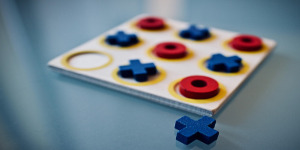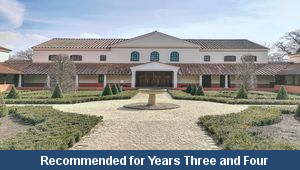Class Games

Devise a number of games for the class to play to reinforce their understanding of different skills that are needed when working in a range of curriculum subjects. The children can select and build some of their own games to demonstrate their grasp of a specific concept in literacy or numeracy lessons.
Suffix Matching Games
Provide the children with some word lists to match different vocabulary patterns for suffixes. The class can use the sets of words to build some matching games for other pupils to play. Get the children to arrange the word roots without suffixes on a game board with five rows and columns and then produce a set of cards showing the selected suffixes. The game can be played by selecting different suffixes to see if they match the word roots on the game board. The players can place counters on any matched words that have been identified. The player who is the first to make a row of five matched words is the winner.
Spelling Guessing Games
Work with the class to make a list of words to match a specific spelling pattern such as words with different consonant digraphs or common letter strings. Tell the children to create a picture of something that has been divided into ten parts. Each player can take it turns to guess which word has been selected for each game. The players can select letters of the alphabet to try and guess each word. If a player guesses a letter that is not in the word then one of the sections of the picture can be coloured. The game is won when a player guesses the selected word but if all of the sections of the picture have been coloured in then the game has been lost.
Times Tables Pairs
Get the children to produce some sets of cards showing the calculations and products in the different times tables. Each times table fact should be recorded on identical cards. The game cards can then be placed face down on the table and the children can take it in turns to select a pair of cards to see if they can find a matching question and answer for a times table. The winner is the player who has matched the most pairs of cards at the end of the game. Some children can be supported when playing this game by getting them to play with the facts in one times table whilst other children can be extended by playing with multiples times tables.
Number Calculation Races
Split the class into pairs and get them to select a number with a matching set of digits to match their ability levels. The children can use a sand timer to see how many addition, subtraction, multiplication and division calculations can be used to produce the selected number before the sand runs out. Each player can win one point if they have managed to record a calculation that has not been selected by their opponent. The winner is the player with the biggest number of points. Some children can be supported by getting them to focus on one calculation method to use during the game.
Game Development
Allow the class time to build some of their own numeracy and literacy games for other pupils in the class to play. Get the children to select a skill in one of the subjects to use as the focus for their games such as punctuating sentences with commas or finding fractions of number. Tell them to use the skill to build something that is similar to a game that they are already familiar with such as snakes and ladders or ludo. The class can work in a design technology lesson to build their games ready for players to use during other lessons.
-

Roman Settlement
Explore and record what happened when the Romans settled in Ancient Britain and how it impacted the population and made changes to ways of life
-

3D Shape Labels
Identify and record how to label models and illustrations of some different 3D shapes to indicate their special properties
-

Word Matching
Identify, match and record the initial sounds that have been used in a range of cvc words beginning with different letters
-

Family Toys
Investigate and record how a selection of different toys and games that were owned by families have changed and developed over time
